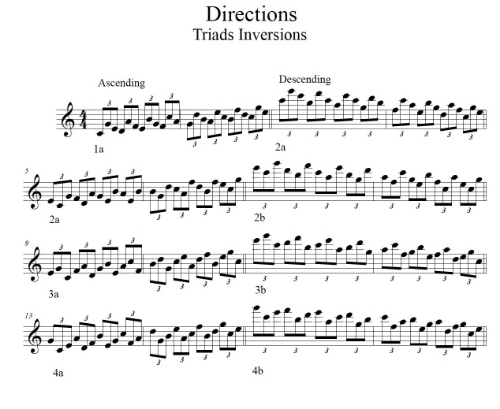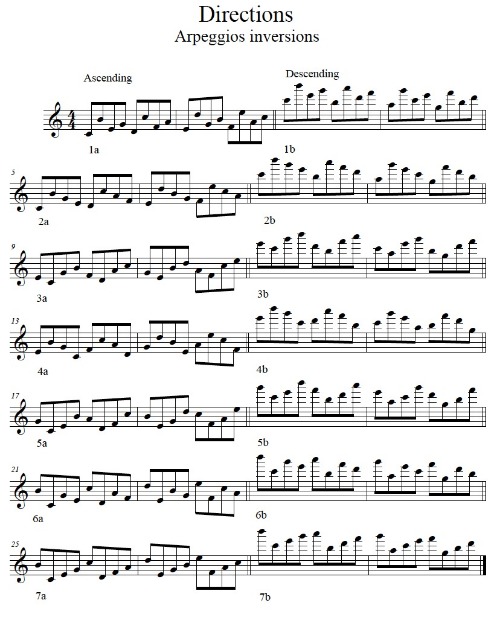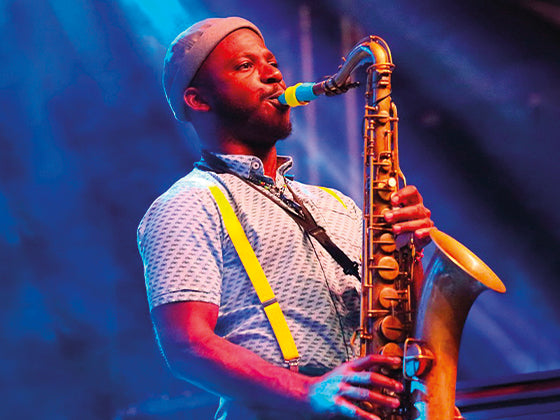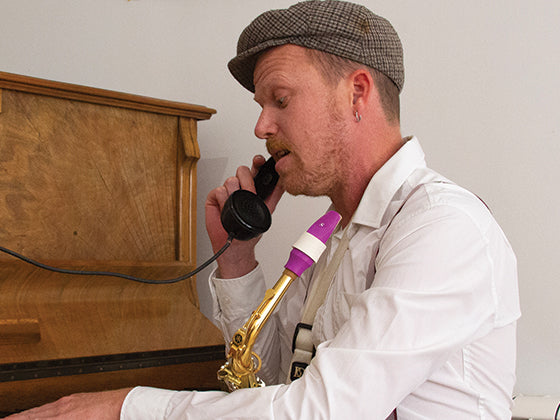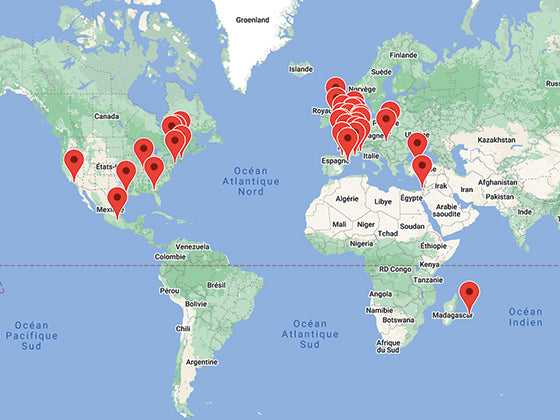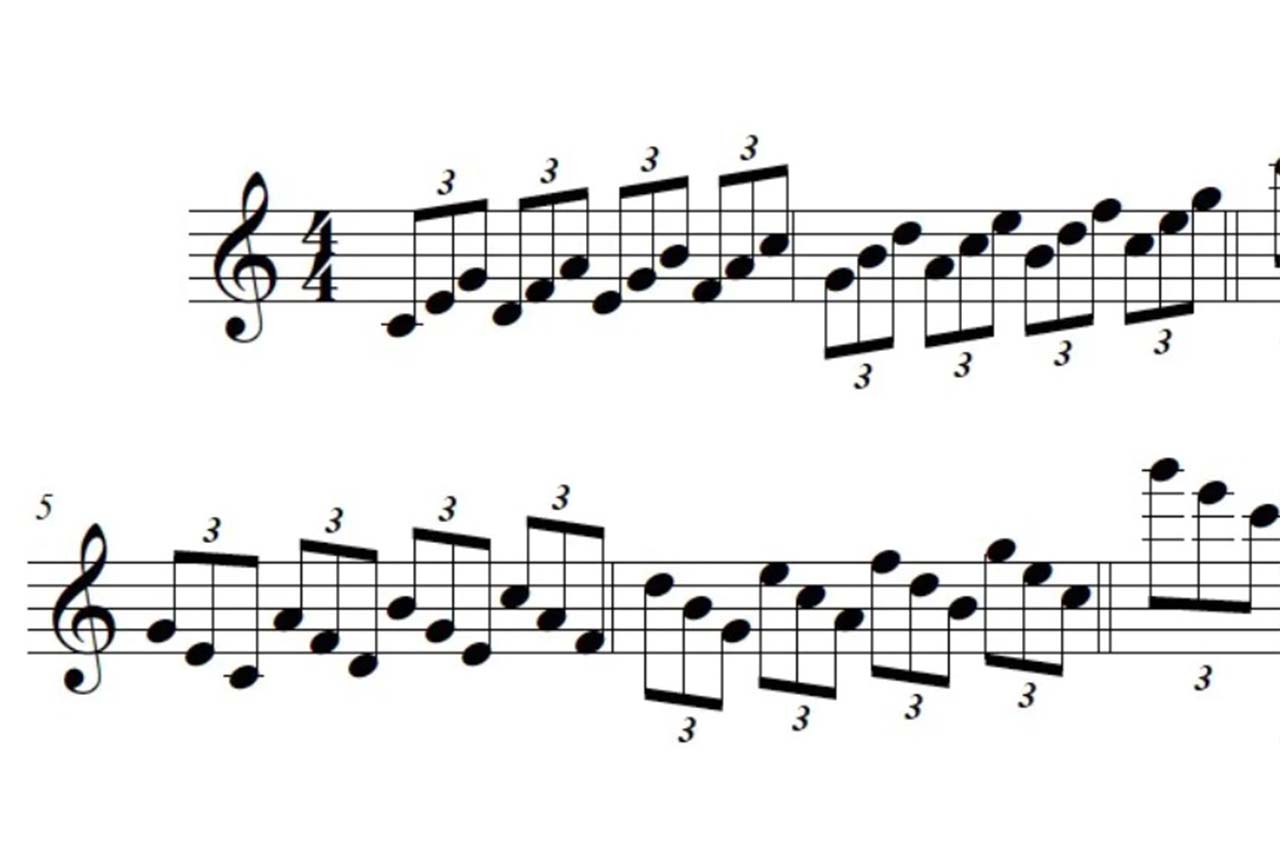Last month, a student of mine told me that he was rushing through his scales and long tones, "the boring stuff you see", before transcribing solos, i.e the fun stuff. I totally understand, having gone through the same phase, but then I started thinking about it. I too was bored of practicing my scales, not seeing any interest in it and also not seeing any progress in my playing. But nowadays, if I don't play any scales for a couple of days I feel like something is lacking... What happened?
The way we think about practicing scales influences the way we practice. So all we need to do it's change our mind, and decide that we are going to fall back in love with scales!
I was lucky to study with an amazing teacher who helped me revolutionnize my way of thinking about practice and music in general. His methods were so simple, rather than prescribing me textbook rules, he listened. Therefore, every time I had encountered difficultes he helped me to find a solution, as a result I really listened to the advice I was given, without questionning the reason. He told me "practicing scales and technique is awesome, just do it and don't worry about whether is it good or bad, just practice. Some days it'll be better than others, but that's not what's important. All that matters is that you do it, because you won't progress without practice".
His perspective changed my way of thinking about scales from "it's boring, it's useless, so I played them quickly, poorly and adopted a lot of bad habits" to "I'm going to take this serisouly, because they are essential to me improving. And I'm going to love doing it!!". Because when we practice scales and technique, we don't only practice the fingering, but we also practice our tone, embouchure, focus and general dexterity.
Progress does not happen overnight: metronome, patience, regularity
I realized I was not making any progress because I did not spend enough time on each exercise before moving onto the next. I was impatient to play better, but in order to play better you have to invest the time, it does not happen overnight. Now, after warming up with long tones, overtones and 5ths/8ves, I practice between 45 minutes and one hour for each key, repeating the same exercises for several months. So of course you cannot practice all keys in one practice session (I mean, maybe if you have 12-hour practice sessions, which is amazing, congrats!) but you can organize yourself in order to practice all of them in rotation.
So I practice the same exercise one a key a few months, until I can apply it to all the tunes I'm currently working on. Or some old ones I know well.
These intense exercises require patience and an ability to block out the outside world, just as with long tones. Working up to one hour on the same key with a 40 bpm beat is a real challenge compared to the speed we're used to nowadays.

Directions
There are eight ways we can work on scales. The sheet music is included below as it's far clearer to read musically than to explain.


This is also a very good way to work on the higher register and altissimos. Start from the bottom of the horn and go up until you reach your limit, watch your embouchure and your tuning, go very slow and pay attention to fingering. The brain remembers mistakes very well, too well. If you make a mistake, slow down, focus and do the exercise right 3 times in order to erase the memory of the mistake. That way you will increase your register day after day, semi-tone by semi-tone. Be patient and careful.
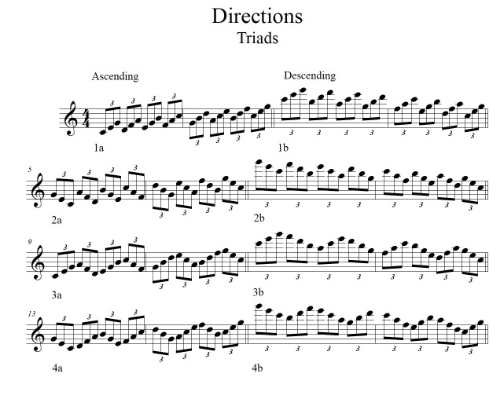
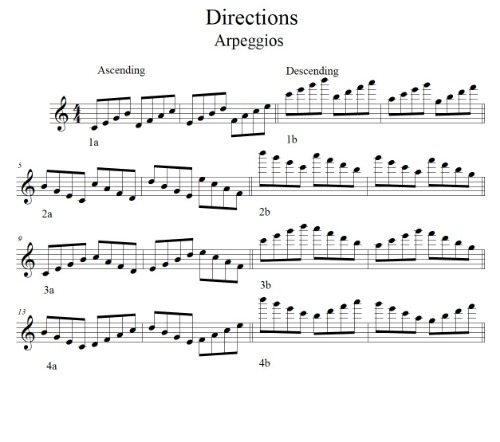
Enjoy!
NB: I only wrote the two first bars in each direction. For example, put the metronome at 40 bpm, play a scale in 8th notes, go up with 1a until you cannot anymore, go down with 1b to the bottom of the horn, then go up again until the root. Do the same with 2a and 2b, 3a and 3b, 4a and 4b. Then do the same with intervals, the 3rds as a start, the 4ths if you're hot, save the 5ths, 6ths and 7ths for winter and start with the triads, all directions, and arpeggios to finish. As a bonus, you can also practice inversions.
